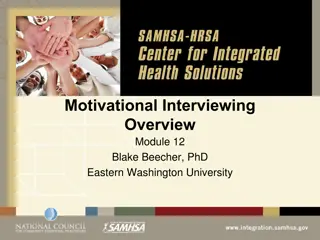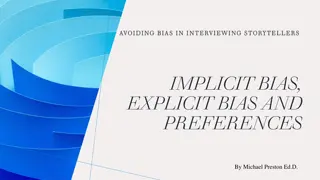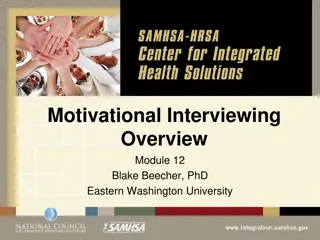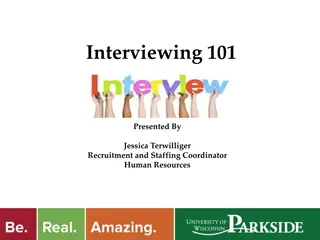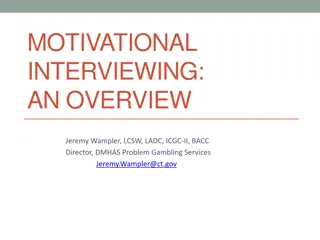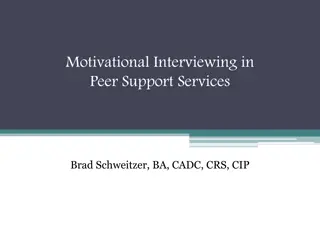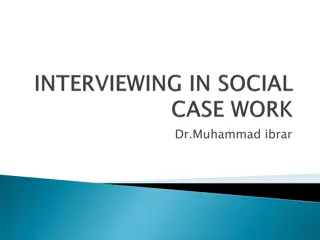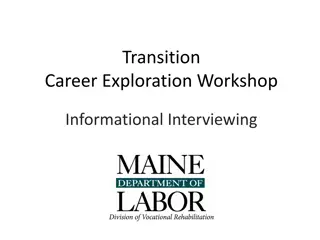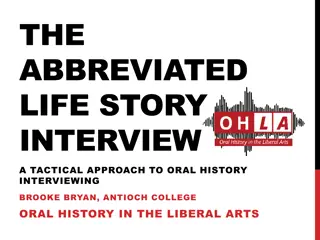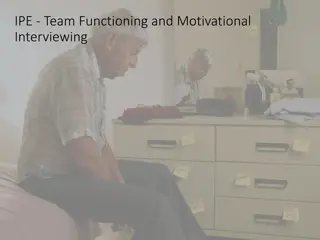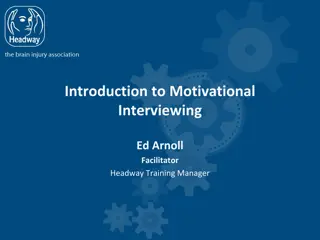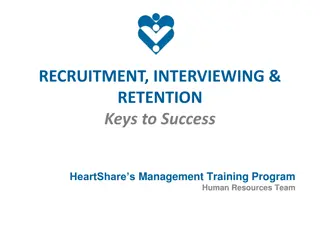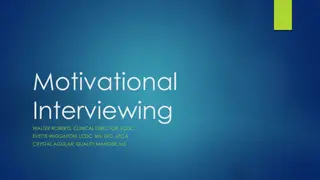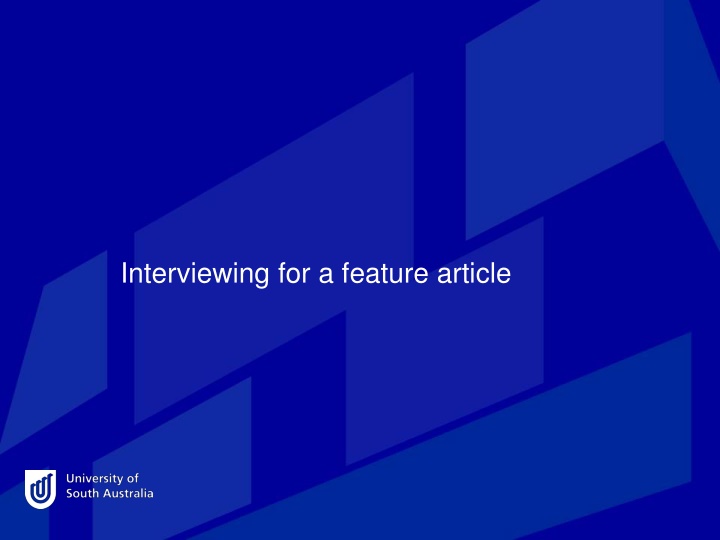
Mastering the Art of Effective Interviewing for Feature Articles
Learn the essential principles of conducting impactful interviews for feature articles in journalism. From preparing thought-provoking questions to considering ethical aspects, this guide provides valuable insights for aspiring writers and journalists. Enhance your interviewing skills and captivate your audience with compelling storytelling.
Download Presentation

Please find below an Image/Link to download the presentation.
The content on the website is provided AS IS for your information and personal use only. It may not be sold, licensed, or shared on other websites without obtaining consent from the author. If you encounter any issues during the download, it is possible that the publisher has removed the file from their server.
You are allowed to download the files provided on this website for personal or commercial use, subject to the condition that they are used lawfully. All files are the property of their respective owners.
The content on the website is provided AS IS for your information and personal use only. It may not be sold, licensed, or shared on other websites without obtaining consent from the author.
E N D
Presentation Transcript
Getting the information In journalism, the information you use is the heart of your writing. In order to make an impact and inform your audience, you need details, sources and evidence. 2 Vieregge 2016
The four principles of an interview Prepare carefully, familiarize yourself with as much background as possible. Establish a relationship with the speaker who is conducive to obtaining information. Ask questions that are relevant to the speaker and those that induce the speaker to talk. Listen and watch attentively. 3 Columbia University n.d.
Preparing for the interview Identify the questions you want to ask and how to ask them. Plan for the interview by thinking about the topic you want to cover. Write your questions out before the interview. 4 Vieregge 2016
Questions to consider before the interview What do you know and what do you need to know? What are you trying to inform your audience? What are some of the potential outcomes? (both positive and negative) What are some of the ethical issues pertaining to the topic? 5 Vieregge 2016
Other aspects to consider What organizational policies or professional guidelines should you consider? How can you bring people with different perspectives and ideas into your decision making? Who will be affected by your decision? Think about your topic and who will be reading about it? How would you feel if roles were reversed and you were the subject of the story? Are there ways to minimize harm while remaining true to the facts of the story? 6 Vieregge 2016
Type of questions Direct questions These types of questions flow from the theme of the interview Interview about a fatal accident: reporter asks questions about who died and where and how the death occurred. The open-ended questions have no fixed limit or that require your interviewee to provide details. The close-ended questions call for a brief pointed reply. Open-ended example: Do you like animals and why? Close-ended example: Do you like animals? Not many reporters have the confidence to ask these types of questions. Sir, since you are a dictator, we all know you are corrupt. In what measure are you corrupt? Most of these concern the private lives of the interviewee. Asking a football player about his mental illness. Open and close- ended questions Tough questions Intrusive questions 7 Columbia University n.d.
The interviewers ground rules Identify yourself to the interviewee at the start. State the purpose of the interview. Specify to the interviewee how the content of the interview will be used. Inform the interviewee of the potential length of the interview. Keep the interview as concise as possible. Ask specific questions that the interviewee is competent to answer. Give the interviewee ample time to reply. Ask the interviewee to clarify complex or vague answers. Read back answers if requested or when in doubt about the phrasing of crucial information. Insist on answers if the public has the right to know. 8 Avoid lecturing the interviewee, arguing or debating Columbia University n.d.
Some tips for positive outcomes Be Yourself. Don t act out of character. Choose the right setting. Tap into your subject s ability to remember the details of an event or situation. Always ask why in order to fully understand what is being said. Take notes. Don t be late. Dress appropriately 9 Vieregge 2016
Reference Columbia University n.d., Interviewing principles, viewed 16 November 2016, <http://www.columbia.edu/itc/journalism/isaacs/edit/MencherIntv1.html>. Vieregge, Q 2016, Journalism: gathering information and writing your story, viewed 16 October 2016, <http://writingcommons.org/open-text/research-methods- methodologies/empirical-research/interviews/journalism-gathering-information-and- writing-your-story> 10 Vieregge 2016



